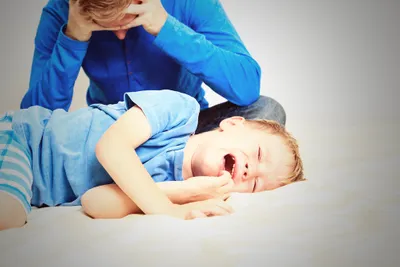These days, it’s becoming increasingly frowned upon to yell at your kids (especially when you’re in a public setting). However, while the acceptance of screaming at kids may be dropping, the number of times your child may become unruly probably isn’t.
Having a child throw a temper tantrum at the mall can be exhausting and embarrassing, so how do you deal with a child that just doesn’t seem to be able to control themselves despite your best efforts? It’s more about being the role model for how you’d like your child to behave, while also exuding positivity through difficult moments, according to some experts. Here are six alternatives to losing your temper when it comes to disciplining your little ones…
1. Choose your Battles Wisely
Every child is going to have moments when they’re tired, stressed, or just want to push your limits. That can mean a tiring exchange while you try to calm junior down. However, if you did this every time your child acted unfavorably, you’d probably feel burnt out.
Parenting magazine says you should focus your energy more on the moments that will really make a difference. For example, if your child refuses to wear the shirt you want them to for school or camp, maybe just let them make that decision (as long as it’s not too impractical or outrageous). If the child is in danger from their actions, then it’s time to step up, said the article. Also, if they slap you or another child, then you should tell them why it’s not okay. If your little one decides to hurl food at their grandparents, you might also want to intervene.
2. Replace ‘Time-Outs’ with ‘Time-Ins’
Many parents use the traditional method of sending their child off to the corner when they misbehave to think about what they’ve done. The problem is, according to TIME magazine, is that many children view time-outs as rejection. It communicates you only want to be around them when they’re on their best behavior—and that’s just not realistic.
The article suggests trying a time-in, which is sitting with the child who is removed from the situation while talking to them about what happened. This shows you’re not rejecting them because they didn’t know any better not to draw a flower on the kitchen cabinet. With a time-out, the child may be in the dark about why they’re being punished.
3. Don’t Overreact to Small Things
Your child may be at an age when he or she knows they’re being naughty, but wants to see how far they can push the boundaries before mommy and daddy lose their cool. An American Academy of Pediatrics article notes that parents who can remain calm during an outburst can actually drive down the number of times their child tests them.
Aha! Parenting also says it’s normal for kids to express feelings by acting out, and that you shouldn’t “reward” them by also getting upset. If you frown upon everything they do and end up yelling at them, your child will eventually learn to tune you out and you’ll have a harder time reaching them, experts have noted.
4. Take some Time to Calm Down
Yelling is often a knee-jerk reaction to being overly angry (except in cases when the child is in danger—it’s probably safe to say raising your voice is okay in these situations). That’s because you’re reacting immediately to the situation before letting your blood pressure subside, which you hopefully wouldn’t do in a relationship, you’d take a walk or something first, right?
The same goes with your child, explains Empowering Parents. You could end up overreacting and hand down a punishment that’s completely out of line with the infraction. Instead of throwing your own temper tantrum, take some time to breathe through it and talk to the child rationally later on, suggests the article.
5. Be a Positive Role Model
According to a Huffington Post article, by remaining positive even through the tough times, you provide your child with positive reinforcement. They worship you and follow your actions, so walking around stressed and angry all the time will eventually rub off on their behavior.
The traits of a good role model include being dependable, said the article. If you promise your child you’ll hang out with them at a certain time, do it. Letting them down might lead them to “flake out” of obligations in the future. Other positive role model actions are being attentive to your child (put down your phone occasionally), being loyal to loved ones, and also taking care of yourself too!
6. Reward Good Behavior
While many choose to take away something (like television or the tablet) when their children don’t listen, you can also flip this around to give it a more positive spin. Parents magazine notes that instead of depriving your kid of something, you can choose to reward them for following your lead.
There are many types of rewards you can offer for good behavior, Parents magazine noted. It can range from a simple “thank you” for putting a dirty shirt in the hamper, to giving them a knowing hug. However, the magazine also points out that you shouldn’t go overboard with praise, so your child knows when you’re actually being sincere.









